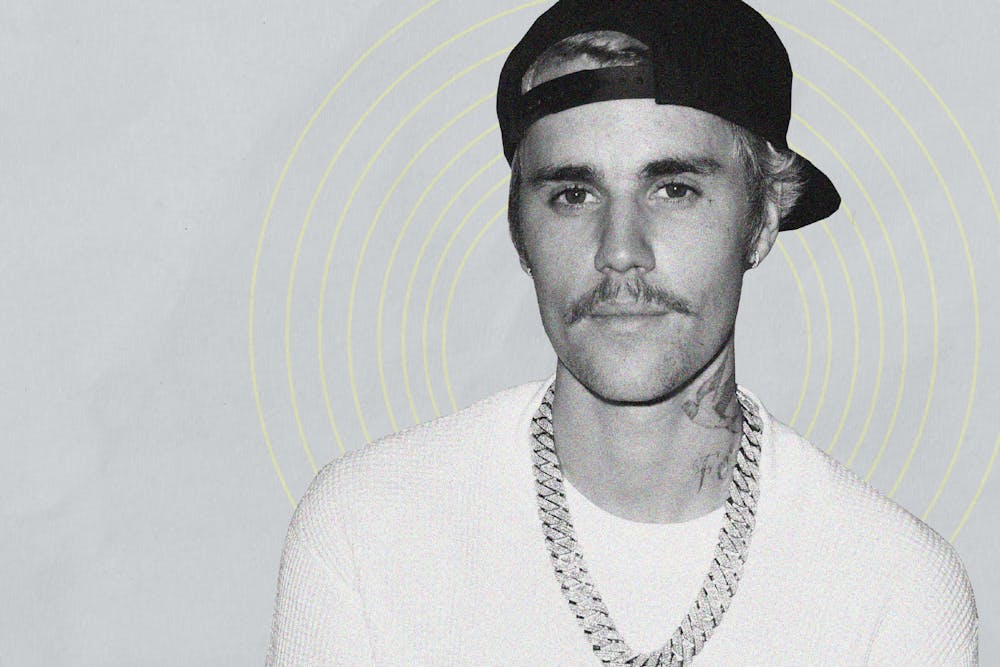“Injustice anywhere is a threat to justice everywhere.”
Civil rights activist Martin Luther King Jr. declares this acclaimed statement in the opening lines of Justin Bieber’s new album, Justice. This quote is powerful and resonates with global citizens looking to take action. Later, in "MLK Interlude," the voice of MLK from a 1967 sermon preaches to Bieber fans, “If you have never found something so dear and so precious to you that you will die for it, then you aren’t fit to live.”
On first listen, one might assume Bieber’s new album would have a tremendous activist agenda. During a time of civil dissension and inequality permeating the headspace of youth advocates, the album title Justice and the double feature of MLK—the face of the American civil rights movement and leader of seismic, yet peaceful protests—would suggest Bieber was taking a stance on such relevant issues.
Instead, the album ultimately takes a sharp turn down Bieber’s classic, chart–topping pop sound that has, well, not much to do with civil justice at all. The tracks on the album are catchy but inapplicable to any of these fundamental problems. Many fans online have accused Bieber of "performative white nonsense," exploiting activism for a greater number of streams. However, when isolated from this inexplicable connection, Justice represents an exciting progression in Bieber’s growth as an artist and a figure in the public eye.
The album itself focuses on Bieber’s evolved sentiments regarding love and marriage. He digs into his 2015 roots in a similar fashion to Purpose. Bieber brings together a cast of several big–time artists, targeting a widespread audience with industry players like Dominic Fike, Khalid, Chance the Rapper, and Daniel Caesar.
Following MLK’s monumental statement in Justice’s opening track "2 Much," Bieber breaks out into a heartfelt ballad about being madly in love. He passionately reveals his feelings, belting, “Don't wanna fall asleep / I'd rather fall in love.” This love song is irresistibly captivating, with a soft cascade of piano accompanied by Bieber’s intimate voice. The connection between King’s message and the implications of “2 Much” is elusive. However, aside from this disparate feature, the track is a perfect window into the album’s comprehensive thematic ideas of marriage and loyalty.
Justice reveals a new side of Bieber’s music, showcasing the provisional pop landscape with hints of emotional ballads that foster an intimate experience. Rising hit "Peaches" brings in traces of R&B with the dual feature of Daniel Caesar and GIVEON, gaining traction on social media platforms like TikTok. In “Peaches,” Bieber pays homage to his house in Georgia, while imprinting comments about his wife. It’s a sun–kissed track that feels like driving down the West Coast, embracing listeners in the sweet aura of summer.
Sustaining this feel–good energy is "Somebody," which is produced by Skrillex and anchored by a relentless backbeat with a simplistic, yet catchy chorus. It pairs well with the jubilance of "Love You Different," featuring Jamaican pop star BEAM. Next, Bieber unites with Burna Boy on "Loved By You." This song, imbued with tropical beats, is introspective as Bieber reflects on his deep need for external validation: “Oh, I hate the way I need to be loved by you.” This is not the only track where Bieber pensively ruminates on his past self and his emotional maturity. In "As I Am,” Khalid joins Bieber against a slow–building melody that explodes in a buoyant chorus where the two artists preach lessons of love and value.
This somewhat surprising side of Justice that is vulnerable and raw exhibits a maturity in Bieber’s music and motive as a songwriter. He enters a realm of heartfelt, honest themes in "Lonely" and "Unstable," respectively featuring benny blanco and The Kid Laroi. These tracks open fans up to the concealed struggles that Bieber has dealt with while being in the spotlight since 2007, and under constant scrutiny by the media. He reveals the truth about his mental health in "Unstable," divulging, “Sometimes I think I overthink / And I start to feel anxiety / There were times I couldn't even breathe.”
Although the final product, drenched in pop soundscapes and notable features, does not necessarily match Bieber’s intent to create a civil rights project, Justice is ultimately indicative of his maturity and evolution as an artist and as a person. He manages to envelop myriad genres—from electronic pop to smooth R&B—and cover a wide range of themes within the 16 song soundtrack. Hits like "Anyone" and "Die For You" celebrate Bieber’s wife, Hailey Baldwin, and her positive influence on his life can be contrasted with ballads that encompass his previous downfalls. Justice represents the peak of Bieber’s discography in its natural diversity of genre and thematic authenticity.
Editor's note: This article previously displayed a headline that contradicted the author’s intent and has been updated. Street regrets this error.







